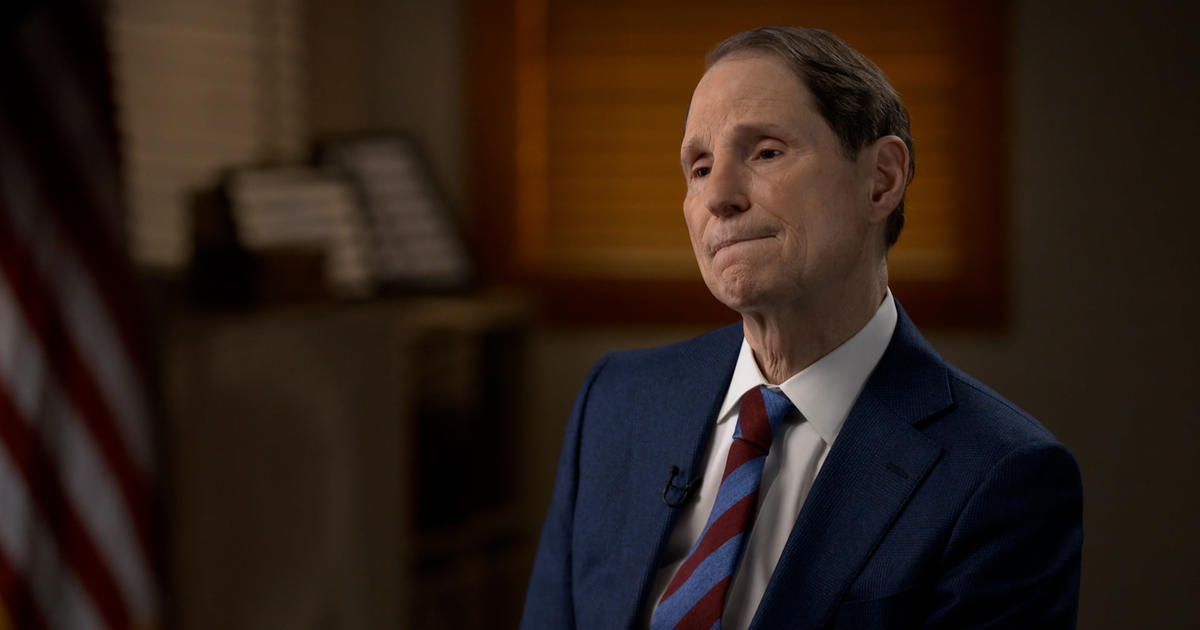Fallon Smart’s killer – a Saudi citizen accused of 1st degree manslaughter for recklessly driving a car into her – managed to flee the U.S. and return to his country even though his passport was confiscated. His disappearance before trial was similar to those of nearly two dozen other Saudi nationals accused of serious crimes, including rape. Victims and survivors believe the Kingdom of Saudi Arabia is helping these criminal suspects evade justice by taking advantage of its position as a critical U.S. ally. Senator Ron Wyden (D-Oregon) tells Scott Pelley the Saudis are known for using every means to be “above the law” in U.S. cases concerning their citizens. The Senate Intelligence Committee member said he could not comment beyond that, but said Americans deserve to know whether Saudi Arabia is indeed helping these individuals evade justice. Pelley speaks to Wyden, victims, survivors and prosecutors for this 60 Minutes report to be broadcast Sunday, December 13, at 7 p.m. ET/PT on CBS.
The Saudi indicted in Smart’s death, Abdulrahman Noorah, has been tracked on social media to his home country. Prosecutors say he probably had help getting back. They say after his country’s consulate produced his bail money, he was picked up by a black SUV, which was driven to a gravel quarry where the fugitive’s GPS tracking bracelet was later found. The police say the SUV then drove in the direction of the airport. Noorah’s name was not found on any airline passenger lists. Despite a warrant on him, law enforcement is now powerless: the U.S. does not have an extradition treaty with its ally.
A joint-reporting project by the The Oregonian newspaper and ProPublica found Noorah’s was one of nearly two dozen similar cases involving Saudis accused of serious crimes, including rape. One accuser says she awoke after a party at her house to find Faisal Altaleb, a Saudi student she didn’t know, on top of her. She told police she had been raped. Altaleb is also back in the kingdom, having fled before he was charged. He still had his passport and it’s unclear if he had help but he’s being protected by the kingdom. Teresa, the accuser, whose last name 60 Minutes agreed not to divulge, is frustrated. “This happened to me; this destroyed my life. But what’s even more disturbing than that to me is… our government isn’t doing anything about it,” she says. “I mean, there was someone else in my town… who was raped by her Saudi Arabian roommate,” says Teresa of another incident that occurred months after hers.
That suspected rapist also fled before he could be charged. Prosecutors say Sami Almezaini got to Mexico first and then to Saudi Arabia, where he is free and out of reach of U.S. law enforcement.
Law enforcement sources told Pelley the cases, though tragic, aren’t as important as maintaining the cooperation between the U.S. and Saudi Arabia crucial to fighting terrorism. This irks Wyden, who has argued on the Senate floor that U.S. intelligence agencies should shed more light on the situation. “The American people deserve to know the truth here,” he tells Pelley, who asks if he has seen the intelligence on the Saudis. “I’m constrained in terms of what I can say. But I can tell your viewers the Saudis pursue these cases with extraordinary sophistication. And they are certainly looking at every possible tool for being above the law,” Wyden says.
Wyden was able to declassify a small portion of an intelligence memo on Saudi Arabia. It said, in part, “Kingdom of Saudi Arabia officials almost certainly assist U.S.-based Saudi citizens in fleeing the United States…” The senator is also trying to declassify what the U.S. knows about the murder of Washington Post journalist Jamal Khashoggi. “I just don’t buy the idea that fighting terrorism and securing justice are mutually exclusive. Our government ought to be doing both,” says Wyden.
Fallon Smart’s mother, Fawn Lengvenis, says the murder of Khashoggi inside the Saudi consulate in Turkey put her daughter’s death in a more disturbing context. “That was the first time that I really understood the enormity of what had touched my life. Because, before this, it was a hit and run,” she tells Pelley. “And then it grew into me realizing that I was dealing with something much larger and much darker and much more violent. And something powerful, something that had influence in our government. And that terrified me.”
Saudi officials declined to be interviewed, but told 60 Minutes in an email that, “The notion that the Saudi government actively helps citizens evade justice… is not true. This is evidenced by the fact that a number of Saudi citizens are currently serving prison sentences in the U.S.”
